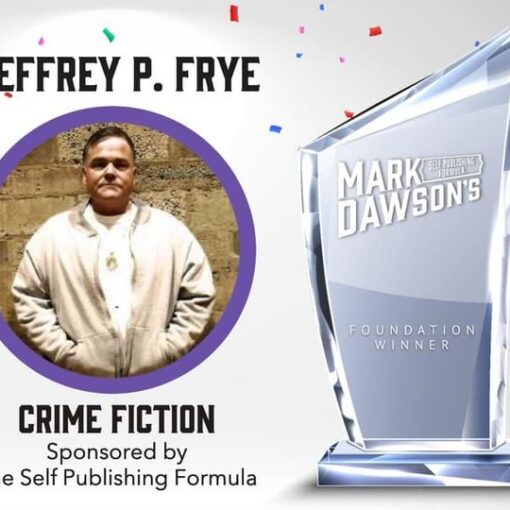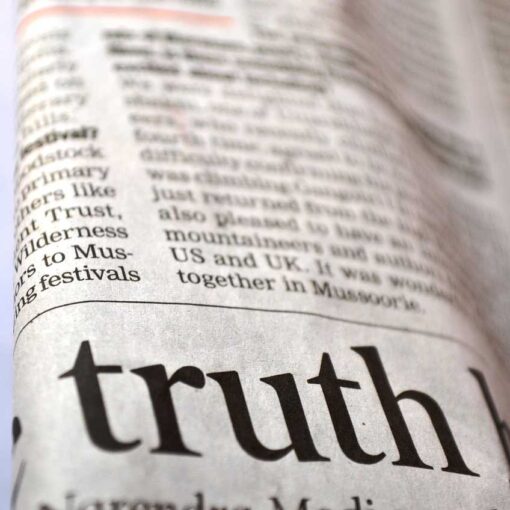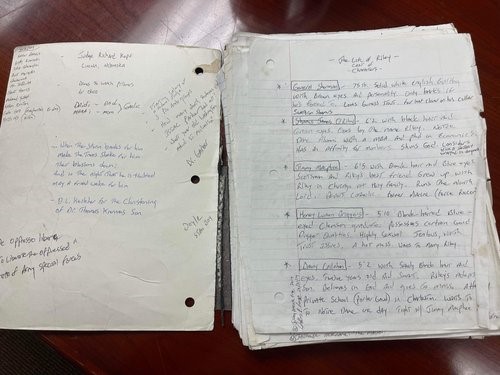
Sometimes in life, lessons come from the most unexpected of places. I re-learned this a few years ago during a spring that started out like all others. I lived in Charleston, South Carolina at the time and the Mimosas and Crepe Myrtles were in full bloom as the weather heated up and violent spring thunderstorms rolled in off the ocean every afternoon around 3 p.m. I was between incarcerations, but still under the supervision of a low-level, gun-wearing civil servant who’s instructed me that I could not work in the field of law.
So I went online one day to a database of local companies that were hiring and I found a job. The place that I chose was a tour company that did boat tours to Fort Sumter. Fort Sumter is an old three-story brick structure that was built on a stone mole on an island artificially created by sinking ballast stone in the shallow water off of James Island. It sits at the mouth of the Charleston harbor and was the recipient of the first shot of the American Civil War on April 12, 1861. Confederate General Pierre Gustav Toutant Beauregard held most of the major forts in Charleston at the time and fired upon his arch nemesis and former instructor at West Point, Major Robert Anderson. Major Anderson commanded the Yankees in Charleston and was dug in with a garrison at Fort Sumter when the order was given by a Rebel Captain named James to Lt. Henry S. Farley to fire a 10″ mortar at the fort. The rest is literal history.”
The job on the tour boat only paid $10.00 an hour, but it allowed me to depressurize and start my day peacefully on the water. On those mornings, I would lean over the side of the boat and watch the dolphins play and race the boat at the bow. When I’d get off of work I would catch a bus and get dropped off in the middle of downtown Charleston, then I’d take my time wandering through the city to my next stop. I caught the next bus at a stop in front of the Medical University of South Carolina (MUSC). I would occasionally go inside to the small food court and get a fat greasy slice of pizza at Sbarros that I’d take outside and sit on a bench and eat. When I was finished eating I’d usually fish my cigarettes out of my pocket and sit there and burn a few to kill time as I watched all sorts of different people walk by. People-watching is an under-rated pastime.
One day I was sitting on the bench and this little kid walked up and sat down beside me, and without saying anything he started staring at me. I was dressed in the uniform of the tour company that included a khaki shirt with a name tag and epaulets that had captain’s bars on them made of gold thread. The kid looked to be around ten and was chunky with a chipmunk face and chubby cheeks and had brown hair that was slightly long and cut into a bowl shape with bangs that hung down on his forehead. He also looked pale.
After watching him stare at me out of the corner of my eye for a few minutes as I took long, deep drags off my cig, I finally said, “You want a smoke, Kid?” His face broke into a smile and he gave a squeaky laugh and said, “I better not, my mom would freak.” Then he asked me, “Where are you coming from?” I explained to him that I worked on a tour boat in Charleston harbor that ferried people out to Fort Sumter and back twice a day. He had intelligent eyes and seemed to take in everything I said, and he wasn’t flighty like most kids are when grown-ups talk to them. I finally asked him, “So what are you doing here? Do you just go around the city and hang around smoking areas and ask people questions?”
He laughed again and said, “No, this is where I live? and he pointed towards the hospital.
“The hospital?” I asked, and he replied, “Yeah, I live on the seventh floor of the children’s hospital.” Then he seemed to think about something for a minute and added, “I need a double kidney transplant or I’m going to die, and they can’t find a donor.”
What do you say to a smart, cute little boy whose just told you something like that? I replied, “Well that sucks.” He burst out laughing and said, “Tell me about it.” I asked him where his mom was and he replied, “Somewhere completely stressed out smoking one cigarette after another.”
I flicked my cigarette over the curb and stuck out my hand and said, “My name’s Jeffrey Frye.” He shook it and said, “My name is Joshua.” Then he asked me, “Would you like to come upstairs and see where I live and play pool with me?”
The bus that I was supposed to catch was due to come in 10 minutes, but I’d made a career out of doing what I wasn’t supposed to and said, “Sure, let’s go.” I stood up and he took my hand and led me into the hospital. Into his world, a world that was filled with sorrow and pain and death and also with unbelievable courage and joy.
The seventh floor of the children’s hospital at MUSC is like nothing I’ve ever seen or experienced before. When we got off the elevator a woman walked past us pulling a red wagon that held a small girl. The child was bald and in a pink hospital gown and had an IV attached to her hand. The woman was making car noises as she pulled the little girl and made her giggle.
Still holding Joshua’s hand we walked a little further down the hall and had to step back to make room for a little boy that looked to be around five and had prosthetic limbs and was learning to walk as his father moved slowly beside him and gently gave him encouragement. I searched the father’s eyes looking for some sign of pain or fear, but all I saw was strength and love.
Those two children and their parents that I saw when I first walked off the elevator effected me deeply. In those few moments I learned what true courage is all about. I’d lived my life in such a way that a lot of my definitions, and especially premises, were skewed and rooted in the sub-cultures than I’d traveled in. Up until that day, when I thought about courage I thought about the willingness to pick up a gun or a knife and handle your business or go into a fight that you knew you were going to lose.
But that day I learned that those are just abstract definitions of courage. True courage is laughing and joking and tickling and reading to and kissing and loving a child you know will be dead in 30 days. That’s courage.
As we walked down the hall I noticed that the walls were decorated with colorful and fun things and that the environment was actually very festive. Joshua was in his element and took me around and introduced me to his doctors and nurses saying, “This is my friend Jeffrey” like we’d known each other our whole lives. You make some friends in life that you just click with, and Joshua was one of these people. He took me to his room and showed me some of the toys he had on his night stand and hopped on the bed and snatched up the remote and showed me all of the stations he watched and acted like the little boy that he was.
As I smiled and listened to his monologue I couldn’t help but think that this might be the room he died in. I’d lived enough of life to know that in spite of all of our hopes and prayers and good intentions and our money, life sometimes has unhappy endings.
After bouncing on the bed for a few minutes, Joshua hopped off and took me by the hand and said, “Let me show you something cool” and took me down the hall to a place called The Atrium. The Atrium is a huge room in the children’s hospital that has 25 foot cathedral ceilings and big Bay windows on one end that look down onto the Charleston Harbor and the Columbus street terminal of the South Carolina Port Authority.
The Atrium is comprised of different areas that are all about fun. There’s a bank of desktop computers and a room where parents can check out laptops for their kids; there’s board games and areas for painting; there’s a large blue mat for wrestling and tumbling; there’s a piano, and there’s a foosball and pool table. It’s a place for kids (and parents) to get away from all of the medical issues so they can play and just be kids. Joshua and I walked to the window and watched a huge container ship making its way into port while being escorted by a tug boat. I finally asked him the obvious question that I’d thought about since I’d met him, “Where’s your dad?”
He stayed quiet for a minute and said, “He’s in Myrtle Beach, but I really don’t see him. My mom says that he’s a prick.” That made me laugh and he continued, “He’s a match for a donor and he could donate one of his kidneys to me, but he won’t do it.”
I didn’t know what to say, but I agreed with his mom’s assessment. And I didn’t even know who this guy was, but I wanted to give him a serious beating. Here was a beautiful little boy who was dying and being incredibly brave about it and his father had the power to save him, but wouldn’t. I finally said, “Let’s play some pool. I got a feeling I can whip you.”
He laughed and ran to the pool table and began to rack the balls as he said, “No way. And don’t let me win just because I’m a little kid because I’ll know if you do that.”
After I beat him the first game I told him, “I’ve played little girls who needed lung transplants who were better than you.” He stepped it up and gave me a run for my money in the second game.
After we’d finished, we walked over to the piano and I said, “I wonder how this thing works?” and then I sat down and hammered out a song for him. I learned to play the piano as a child by stick-wielding nuns. As I was playing the first song, kids and their parents came and surrounded Joshua and I and he started bragging on me, telling people, “He knows all kinds of songs” and acted like we’d known each other our whole lives. I liked this kid.
After I’d finished playing, this woman walked up and said, “There you are Josh, I was looking for you.” She was thin with long blonde hair and had dark circles under her eyes fingernails chewed to the quick and looked stressed to the gills. Her name was Robin and she was Joshua’s mom. Joshua excitedly introduced me to her telling her, “This is my new friend Jeffrey Frye” and then asked if I could stay for dinner and eat pizza with them.
Robin gave me a weary, uncertain look and said, “He doesn’t look hungry to me, Josh.” I got it, and I asked her, “Want to go downstairs and smoke a cig?” She said, “Sure, what’s one more. I’ve already smoked two packs today” and we left Joshua in The Atrium and went outside to the smoking area.
As we smoked, Robin told me that Joshua had a genetic kidney disorder. She explained that kidneys have small tubes in them that normally open to allow blood to filter through, but that Joshua’s tubes wouldn’t open and that because of that he had to live in the hospital and undergo dialysis twice a week until a kidney could be found.
If a match couldn’t be found soon, he would die. She said that the medical procedures that he continually had to go through were very taxing, but that he was good-spirited about it and very brave. She went on to explain that she wasn’t a match, but that his father was, but that he was a loser and wouldn’t help because he wasn’t in Joshua’s life.
As we smoked our third cigarette, she explained the process of donating a kidney and the red-tape and politics associated with being on the national donor list. She explained that it was all the luck of the draw and that the bottom line was that somebody had to die so that Joshua could live. I asked her what blood type Joshua was and she responded, “O positive.” My blood type.
I asked her some more questions and she explained to me that Joshua had a “Transplant team” and a coordinator that screened potential donors. I asked for that person’s name and number and she gave it to me. After talking to her for an hour it had gotten dark and I told her that I needed to go. I didn’t want to leave without saying goodbye to Joshua so I went back upstairs with Robin to say goodbye to him.
He asked me if I’d come back and I told him to be down on the bench the next day, same bat time same bat channel. As I leaned down to hug him he grabbed me and held on tight and whispered in my ear, “Please come back.”
I had trouble sleeping that night. I got up and went outside and smoked cigarettes a couple of times and sometime around 4 a.m. I finally gave up the notion of trying to sleep and I got up and went and found the number to the transplant team that Joshua’s mother had given me and I sat on the end of my bed and just stared at it. After sitting there for a few minutes and thinking about things, I decided to try and donate one of my kidneys to Joshua.
My first thought was about what a nice little kid Joshua was and how he deserved a chance to live and love and to have a life. I also considered that I’d lived so much of my life as “A taker” that it was about time I kicked something into the karmic pot and did the right thing for the right reason. Then the last thing I thought about was that that God must’ve wanted me to give up a kidney at some point, otherwise He wouldn’t have given me two?
Donating an organ is an involved process. It’s not like donating clothes to the Salvation Army or like you can just go down to the hospital and say, “Yo, here’s a kidney.” I called the number for Joshua’s transplant coordinator the next day from the pier out at Fort Sumter while the tourists were inside. The girl on the phone ran me through some questions after I told her why I was calling and told her my blood type and a few other things about myself and my history. She gave me an appointment for the next day to come in and undergo some tests.
The treatment team was located in a place called Rutledge Towers and the next day when I went in I was given a lengthy questionnaire and then given a psych eval that, surprisingly, I passed. They drew some blood, and after being there about three hours, they determined that I was a match. I was given a follow up appointment to meet with the doctor that would be performing the surgery, and if everything went well, I would donate one of my kidneys the following week.
That afternoon I went back down to the bench in the smoking area in front of MUSC, and sure enough, Joshua was sitting there waiting for me. When he saw me he came running and I snatched him up and gave him a hug like I hadn’t seen him in years. It had been 24 hours since we’d met.
We went upstairs and played pool and he actually won a game; then we went and sat at the piano as I played a couple of songs while he sang my praises to the crowd and acted like he’d personally taught me to play. I left after a couple of hours and told him I’d be back the next day. I didn’t mention my decision to him or his mom.
The next day I took off work and went back to Rutledge Towers and met with the doctor who would be performing Joshua’s operation. I spent some time with him and we talked as he examined me. We both agreed that Joshua was an exceptional little boy. When he’d finished, he sat in front of me and put down his clipboard and pen and crossed his legs and then folded his hands over his knee and looked me directly in the eyes and asked, “Is there anything at all about your health that you haven’t disclosed or told me about this morning?”
I thought about it for a minute and said, “Yes sir, I have high blood pressure and was prescribed medicine for it, but I don’t take it, and never have because it makes me feel funny.”
His shoulders seemed to visibly slump and he shook his head and bluntly said, “You can’t donate a kidney if you have high blood pressure.” He went on to explain that the kidneys are essential to regulating blood pressure and that people with high blood pressure aren’t eligible donors when it comes to donating a kidney.
When he’d finished talking, the room became still and I sat there feeling incredibly sad. I finally asked him, “Well, what’s going to happen to Joshua then?”
He kind of shrugged and replied, “He can only undergo dialysis for so long, and both of his kidneys are shot” and left the sentence open with a tone that told me that Joshua was fighting a battle with time…and he was losing the battle. I left the doctor’s office and went and sat in a park across the street that has an artesian well and said a silent prayer for my little buddy as I watched people walk up and fill empty plastic gallon jugs with water from the spigot attached to the well. I never mentioned to Joshua or his mother what I tried to do.
I continued to stop by and hang out with Joshua. On days when he underwent dialysis and was too weak to go to The Atrium I’d sit in the chair next to his bed and watch movies with him.
One day he was downstairs with me while I was smoking and I told him about this pizza place around the corner called Norm’s that had pool tables and cold beer that I sometimes hung out at. He said, “I sure wish that I could go there with you, but the doctors barely let me come down here in front of the hospital.”
I thought about it for a minute and said, “They can only yell at us if they find us.”
At this point in my life I’d broken more laws than the Nixon administration, but I’d never helped a nine year old escape from custody. I wasn’t really sure how this one would look on my rap sheet (or go over with everybody), but I’ve made a legacy out of worrying about the consequences of impulsive decisions after the fact, so I jumped up and took Joshua’s hand and said, “Let’s go eat some pizza and play a game or two; let’s blow this pop stand” and we sneaked off to Norm’s to play pool and have a pie. No, I didn’t buy him a beer…but I did let him take a sip of mine. What kind of escaped con doesn’t have a beer?
Unlike most of the crimes I’ve committed in my life, I actually got away with this one. This inspired me to talk to Joshua’s mom and his doctor to get permission to take him on a boat trip out in the harbor. I talked to the captain of the boat that I worked on, which was coincidentally named General Beauregard, and told him about Joshua and asked him if he could give him the VIP treatment when I brought him out for the day.
On the morning of the trip the doctor asked to speak to me in a room alone. Once we were in there he asked me to please not let Joshua exert himself too much and to bring him back soon because he was getting worse.
The captain rolled out the red carpet and gave Joshua the dime tour of The General Beauregard. After we were underway he turned over the helm to his assistant and he took Joshua down into the engine room and showed him how the diesel engines that powered the boat worked. Then he took him to the fantail of the boat, then up on the open-air deck where the tourists sit in chairs on the way out to the fort and back. As we were all standing there looking into the water we saw a school of dolphins swim by in a box formation with the adult dolphins forming the four corners of a square to protect the baby dolphins in the middle.
After that, he took Joshua up to the pilot house and let him steer the boat. It was a warm sunny day and the windows of the pilot house were open and the warm salty breeze blew over him as he held onto the wooden pegs of the helm as he steered and smiled and laughed and said, “Look Mom!” to his mother who was standing right next to him and who was also smiling for a change.
By the time we got to the fort Joshua was too tired to walk and had to be pushed inside while sitting in a wheelchair that the National Park Service kept on the dock for people that needed assistance. I could tell that he was doing his best not to appear sick, but in spite of his efforts, I could tell that he was going downhill fast.
On a stormy morning about two days before Halloween, I learned that Joshua would live.
I was out in the harbor at work and the General Beauregard was being tossed around from the swells created by the storm coming in off the ocean when my phone rang. It was Joshua’s mom telling me that a suitable kidney had been located from an individual who’d just perished in an automobile accident. She said that one adult kidney would be used to transplant two new kidneys into Josh and that he was being prepped for surgery as the kidney was being flown to Charleston. She told me what time the surgery was scheduled for and told me that Joshua had requested that I be there when he came out of the operating room.
After I hung up the phone I went to the port side of the boat and hung onto the railing as I stared out towards Fort Moultrie on Sullivan’s Island and I silently thanked God for answering my prayer.
Joshua’s surgery took several hours and was a success. He’d asked him mom to be in the operating room and to take pictures of his worthless kidneys after they were removed. She complied with his request and ran down to a drug store near the hospital to have them developed while he was still unconscious in the recovery room.
He woke up and was groggy for a little while but he quickly morphed back into his old self and started cracking jokes and asking him mom if he could go trick-or-treating dressed up as a kidney.
He spent another 10 days or so in the hospital while his transplant team monitored his progress to see if his body would accept the new organs. It did.
When he was discharged from the hospital he went to convalesce in a place across the street from the hospital called The Ronald McDonald House. The Ronald McDonald House is a large house with several bedrooms large enough for children and their parents to sleep in during their stay. It’s a beautiful home that’s specially designed to provide a happy environment for terminal, as well as convalescing children.
The house had several televisions and a game room and piano as well as a communal kitchen for families to prepare their own meals in. Joshua stayed there for a couple of weeks and I continued my routine of stopping by after work and hanging out with him as I watched him get strong and recover.
And then one day as it always does, life took an unexpected turn. That turn took me down a road away from Joshua. I’ve come to believe that some people come into your life for a reason, while others come just for a season. Joshua came for both.
It’s now several years later as I write this and the boat rides in the harbor and the dolphins and the pool tables and pianos are long gone. Because of the choices I made, I now live in the shadow of a gun tower and walk continuous circles around a track that’s on a piece of dirt that I very well may die on.
I now refer to a tiny prison cell as “My house” and my net worth consists of what’s inside of a gray metal locker that’s bolted to the wall. Everything else has been taken from me.
I try not to let it bother me though because they’ll never be able to take the things that I truly treasure. The things that I truly treasure are memories that I keep deep within my heart. In the dark of the night when the silence of my cell threatens to crush me, I take these memories out and re-live and feel them one at a time; feel the love and joy that they brought me throughout different times in my life. One of these treasures is the story of Joshua. I’ll never see him again, and I have no idea where he is now, but wherever he is I wish him a long happy life and I thank him for the lessons he taught me and the time I got to spend with him during the season that he was in my life.



